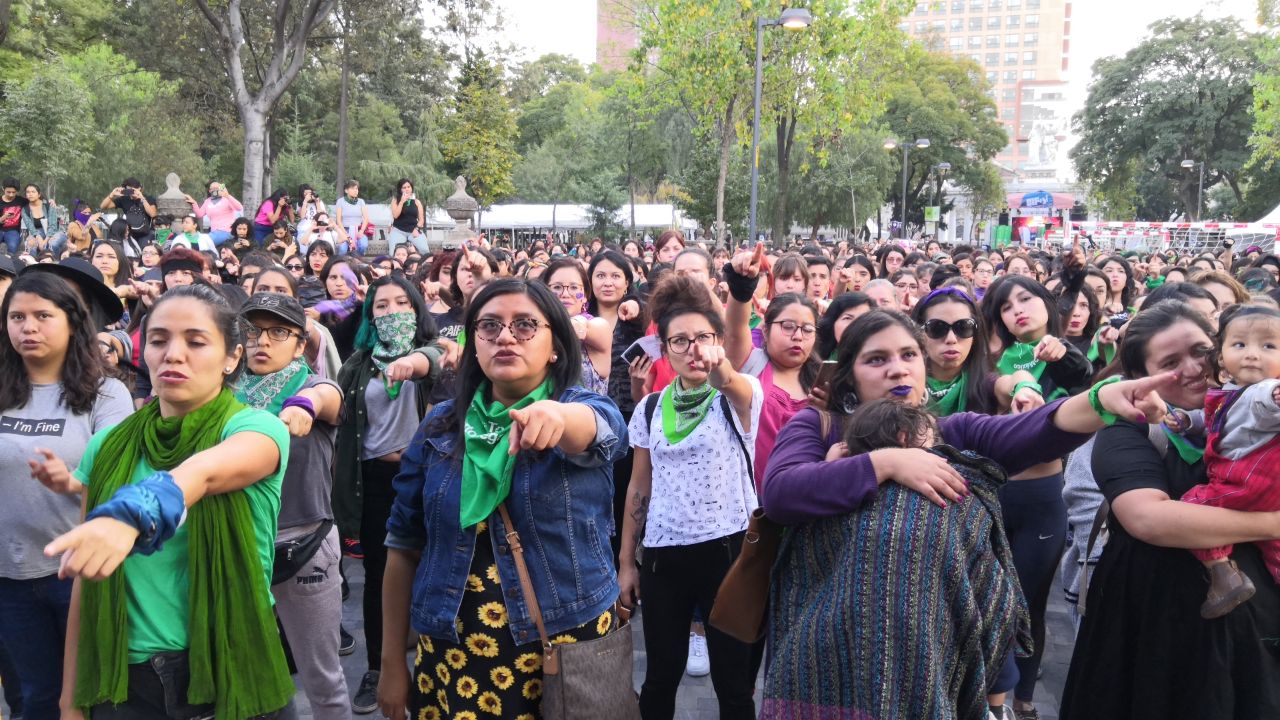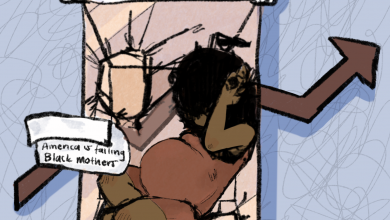‘Un Violador En Tu Camino’: A Global Movement Against Rape

“And it’s not my fault, not where I was, not how I dressed. And the rapist WAS you. And the rapist IS you!”
The protest anthem “Un Violador En Tu Camino” (“A Rapist in Your Path”) has taken the world by storm since November 2019. Based on the work of Argentinian theorist Rita Segato and created by the Chilean feminist collective Las Tesis, this choreographed performance has resonated with women around the world as it describes how institutions of power—the patriarchy, the police, the judiciary, and the state—uphold the systematic use of sexual violence to repress women.
It began in the streets of Santiago, and has since been reproduced in more than 200 cities around the world spanning every continent except Antarctica. GeoChicas, an international women’s mapping community using OpenStreetMap, charted the remarkable phenomenon as it crossed the globe in the span of a few weeks.
¡Aquí la evolución del trabajo que hemos realizado para mapear #UnVioladorEntuCamino! 💜 @isatrapa @mapeadora pic.twitter.com/L52GFDzIA8
— Geochicas OSM (@GeochicasOSM) December 19, 2019
The power of the performance lies not only in its infectious rhythm and the deliberately eye-catching movements of the protestors but also, according to Uruguayan feminist Isaura Fabra, in its adaptability and universality. She asserts that “in every place, the patriarchy presents itself a little differently. But the issue of rape is fundamental.”
Rape is a political problem. From widespread sexual assault on college campuses to sexual violence against marginalized communities, particularly those of color, governments and law enforcement worldwide continuously fail survivors. These establishments are dominated by an insecure and oppressive patriarchy, and perpetuate environments of sexual impunity by turning their backs on the very people they claim to protect.
It is estimated that approximately 35% of women globally have experienced some form of sexual harassment in their lifetime. In the majority of countries that have data on sexual violence available, less than 40% of women who have been assaulted seek help, and less than 10% seek help from law enforcement.
It has been reported that in the United States, a country that ironically flaunts its status as a ‘developed’ country, the vast majority of perpetrators will not go to prison. Out of every 1,000 sexual assaults, 995 perpetrators will walk free.
It is important to note that sexual assault and conviction rates differ by sex, race, class, ethnicity, gender identity, sexual orientation, ability, age, nationality, citizenship status, and many other important factors. Populations that have historically been and continue to be marginalized tend to see higher sexual assault rates and lower conviction rates.
Political institutions have normalized the brutality of sexual violence, evidenced by the enormous magnitude of rapes that go unconvicted globally and the widespread use of victim blaming to silence survivors.
“It’s the cops, the judges, the state, the president. The oppressive state is a rapist. The rapist is you!”
It is this shared understanding across diverse populations that has helped “Un Violador en Tu Camino” transcend national boundaries. For instance, the Aurat March, a series of protests organized in various cities of Pakistan, released an Urdu version of the song two weeks ago. They made additions to the original lyrics to include “the feudal” and “the clerics,” illustrating the performance’s flexibility in local struggles.
This anthem comes from a place the #MeToo Movement and Women’s March do not reach. While the latter center the voices of white women from the Global North living relatively privileged lives, the former highlights the eloquent rage of working class women of color from around the world.
Sexual violence in the Global South is continuously both obscured and overimagined by former colonial powers, and it is often assumed that few ideas of value organically originate from the former colonies. The women and gender-nonconforming people of Chile are disrupting this degrading thinking in a powerful way as the protest moves from south to north, and gains magnificent momentum in a short amount of time.
“Un Violador En Tu Camino” speaks to survivors around the world who are living different realities and occupying different spaces. Of course, the discourse surrounding these movements still must be improved. When we view these movements through an intersectional feminist lens, we can be more inclusive of the wide spectrum of genders and sexualities as well and more thoroughly interrogate false gender binaries. This protest anthem is, however, the start of a new intersectional global feminist movement against rape and sexual assault.
“And it’s not my fault, not where I was, not how I dressed. And the rapist WAS you. And the rapist IS you!”




